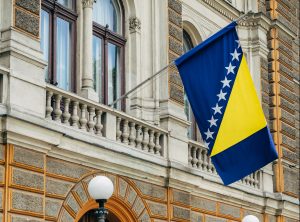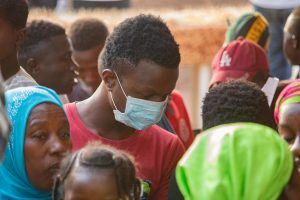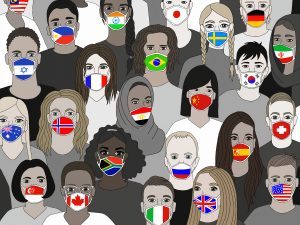
Lessons from Reformers: Nigeria Enshrines Beneficial Ownership Transparency in Federal Law
Read how reformers in Nigeria are working to end illicit financial flows through beneficial ownership transparency.

Read how reformers in Nigeria are working to end illicit financial flows through beneficial ownership transparency.

Read how reformers in Burkina Faso are strengthening mining sector governance through EITI.

Read how a user-friendly open budget portal in South Africa empowers citizens to advance social change.

Bosnia and Herzegovina’s complex, decentralized and asymmetrical political system impairs reform. Yet the OGP process has demonstrated that even in contexts as complex as this, stakeholders can overcome political deadlock to make commitments in important areas of governance.

This blog is part of IRM Week: A Year in Review. Throughout the week, the Independent Reporting Mechanism (IRM) will share findings and analysis from recent reports through a series of events, report launches blogs, and fact sheets. Learn more here. …

In 2018, 22 countries from Latin America and the Caribbean reached a historical milestone in environmental democracy by signing the Escazu Agreement. In 2020, 20 countries have ratified the treaty and one more ratification is missing to make this a reality...
En 2018, 22 países de América Latina y el Caribe marcaron un hito histórico en la democracia ambiental con la firma del Acuerdo Escazú. En 2020, 10 países han ratificado el tratado y sólo una ratificación más se interpone entre la aspiración y la acción.

Since joining OGP, Jordan, Morocco and Tunisia have made over 129 commitments. These have included strong commitments on improving access to public information and open data, but when it comes to implementing commitments both Jordan and Tunisia fall behind other OGP members, and the results of Morocco’s first OGP action plan have yet to be assessed by the IRM...

Like governments around the world, African countries have shifted enormous resources to respond to the COVID-19 pandemic. Given such massive spending, fiscal transparency is more important than ever to minimize financial mismanagement and corruption.

We witnessed an extraordinary gathering on September 24, 2020. In the midst of the pandemic, amidst global protests against inequality and systemic racism, amidst an unprecedented rise in authoritarian leaders attacking democracy and civic freedoms, a coalition of world leaders ...
El 24 de septiembre de 2020 fuimos testigos de una reunión extraordinaria. En medio de la pandemia, de protestas globales contra la desigualdad y el racismo sistémico y de un alza sin precedentes en el autoritarismo por parte de líderes…

COVID-19 has brought to light how gaps in public health-related data hinder pandemic readiness, response, and recovery. These gaps, along with the pre-existing inequalities exacerbated by them, have increased the urgency to shift to demand-driven publication of data and identification of data types needed across different regions and contexts.
Click here for more information about the Open Government Partnership's terms of use.
Terms & Conditions Close